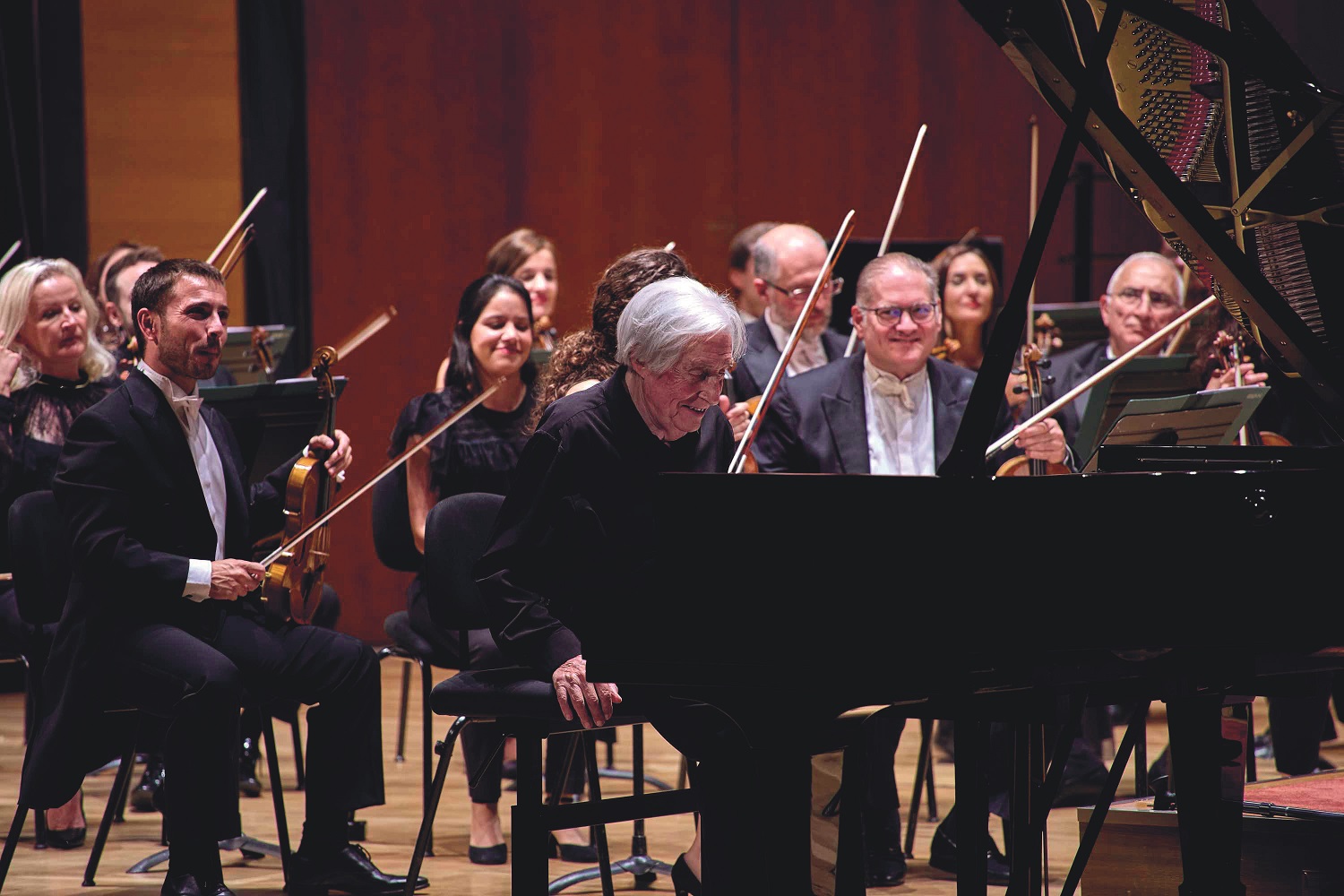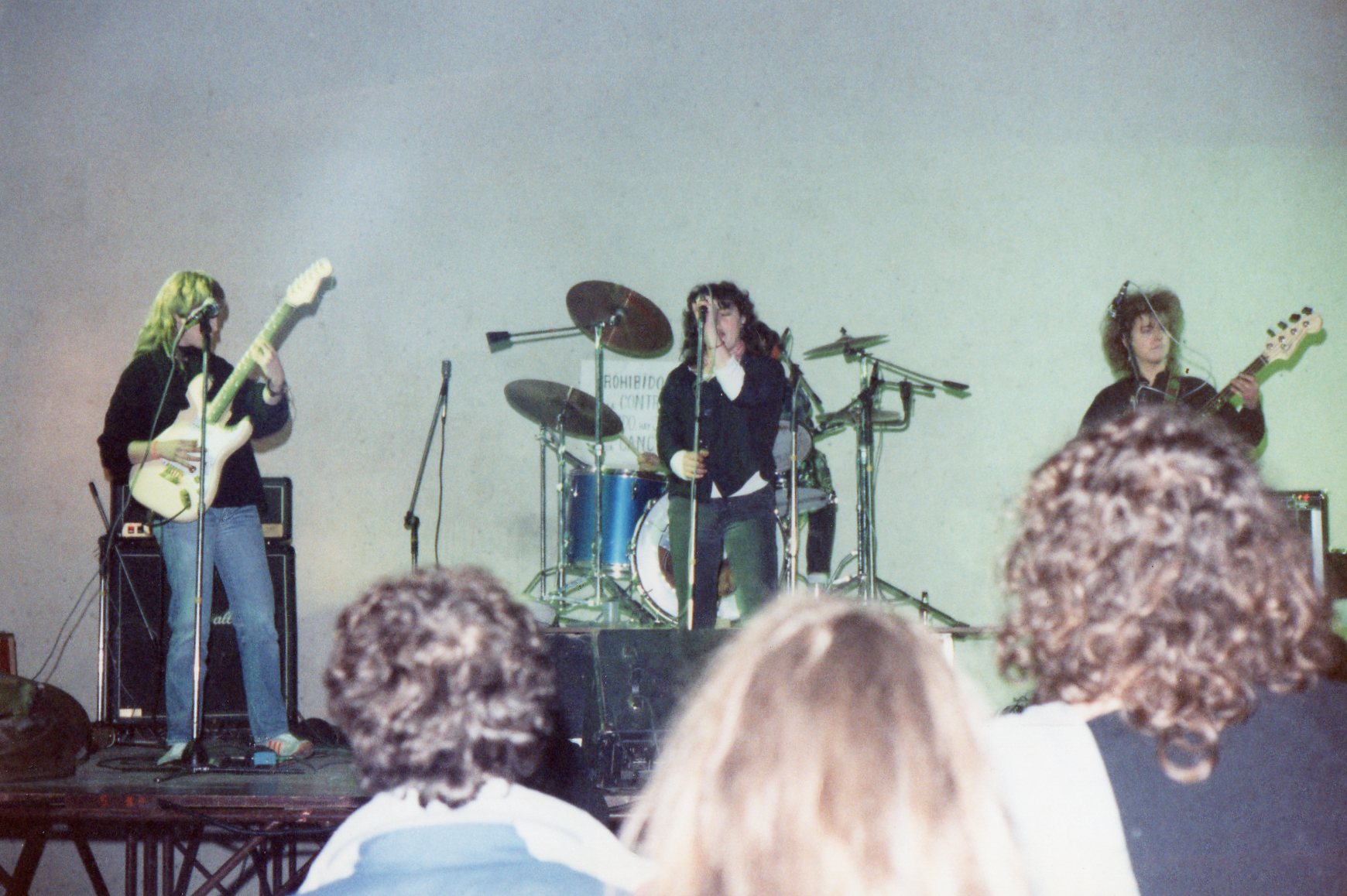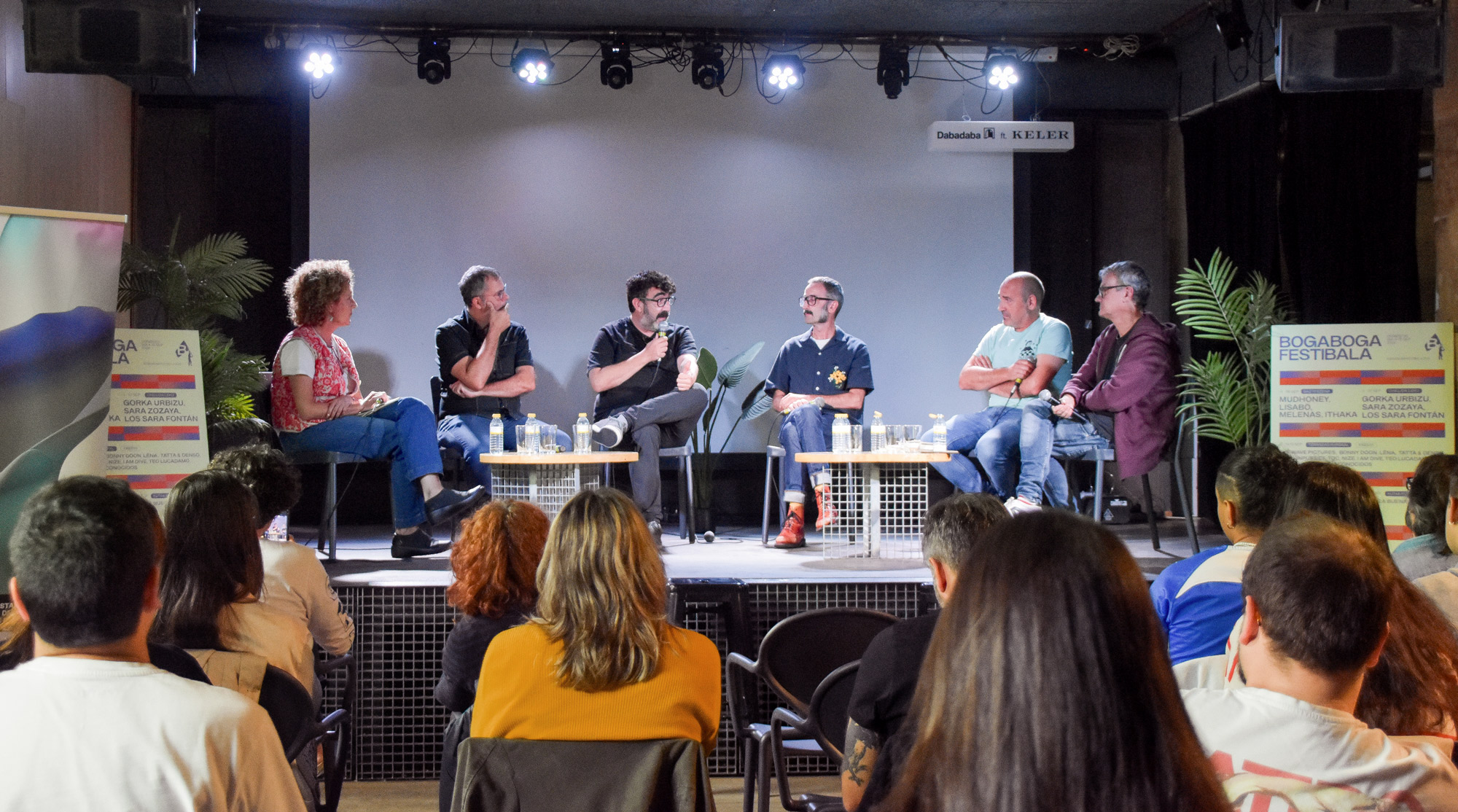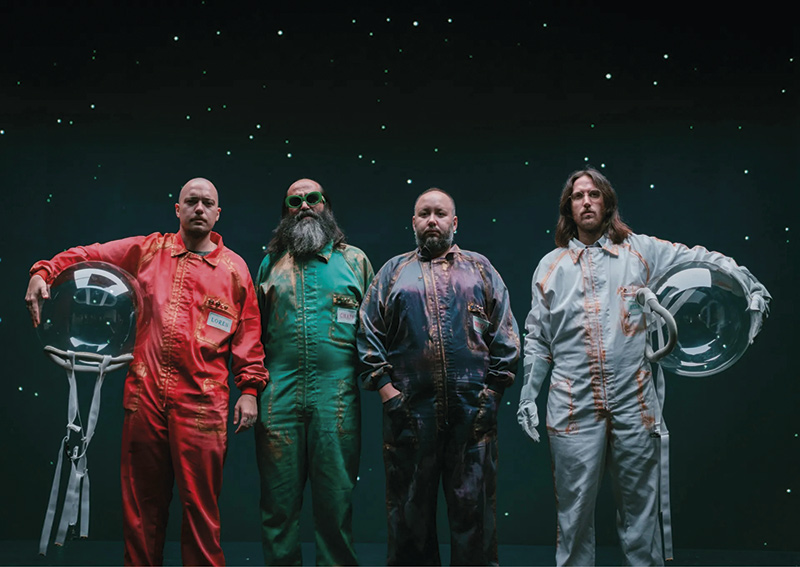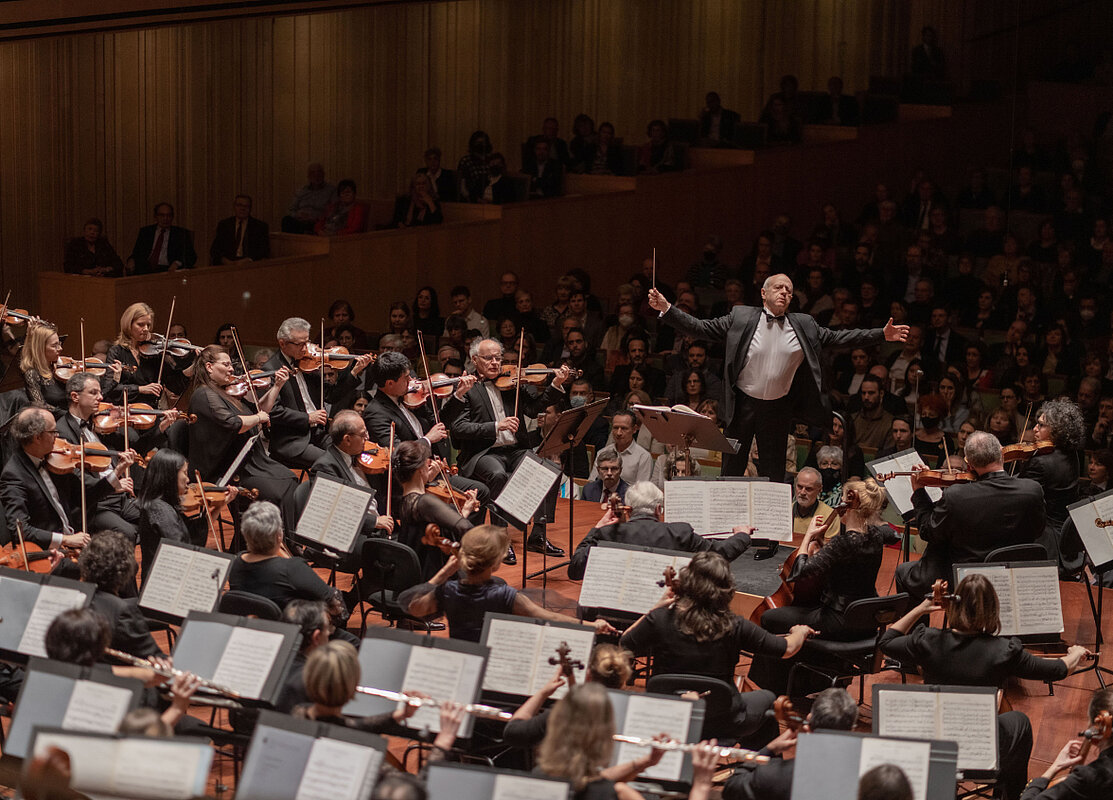"Music isn't going to revolutionize, but musicians have to accompany us in revolutions."
- At last summer’s European Tour we met the Patagonian rapeer Sara Hebe, the best Argentinian rapeer according to some experts. He promised to return to Euskal Herria in less than an hour and fulfilling his word, in recent weeks we have been able to see her in the Gaztetxe de Gasteiz and in the Hikateneo of Bilbao. Born in the province of Chubut, their green and clear eyes say that they are the most Welsh people who populated it, and those of the Mediterranean ancestors, of brown skin. That south that describes resistance as territory owes its worldview and its “text”. As for the interview proposal, the invitation was rushed: “Being asked is a luxury, because it allows you to think about the answers.” We've asked him about music and what it's not music.
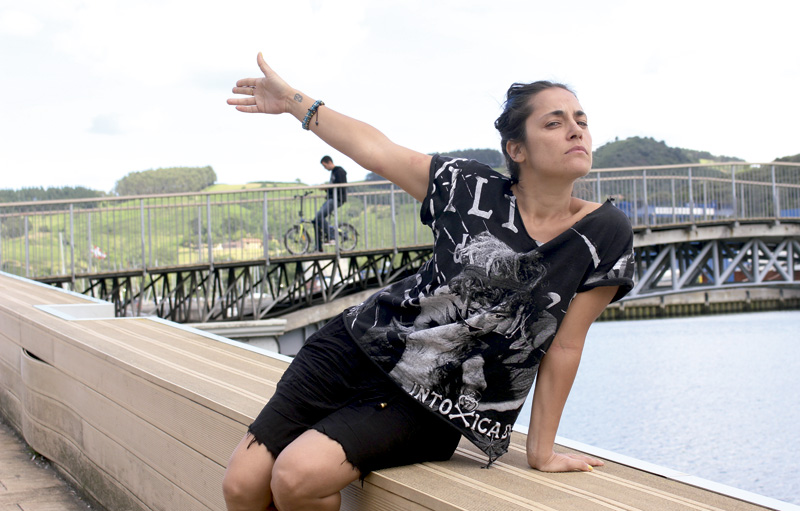
Palo asko ukitzen ditu eta ez zaio rapaz hitz egitea hainbeste gustatzen. Bere hiru lanak horren erakusle dira: La hija del Loco (2009) Argentinako hip hop eszenako ekoizleen oinarri originalak ardatz dituen lana; Puentera (2012), reaggea, cumbia eta dancehall-a nahasten dituena; eta Colectivo Vacío bere azken lana (2015), non punk rocka, funk karioka eta cumbia uztartzen dituen.
How did you start rapping?
He was studying theater and dance in Buenos Aires with actor, playwright and writer Norman Briski. It has always made popular and political theater, linked to resistance, totally linked to left-wing and anti-capitalist social movements. Your school has been mine. We were setting up a theater about recovering a workplace. It is a phenomenon that spread during the corralito crisis that occurred in Argentina in the previous decade. The employers emptied and closed many factories, but the workers recovered those workplaces and cooperated with the production systems.
We were counting on that in the theater, and the workers also participated. In the end there is a song that although the hymn of Serra Lantegia is very melodic, it also has rhyme. And as I was going around this subject, Norman asked me why I wasn't encouraged to rattle those rhymes. I downloaded some Internet bases and started sewing the text on top. Then I started to write “my text.”
With a metric and a strict lyric, your words focus on social criticism made of crude and poetic. Right letters and in position.
Rap has always liked that, because he has a personal speech, because it has been used from the very beginning as a platform for denunciation and opinion. It's a very good way to communicate and see so many things going on.
One is always located. We choose where we do it, where we create it and we say it. As Chilean rapper Ana Tijoux says, music is not going to revolutionize, we have to do it among everyone. But it's up to musicians and artists to be partners in the different revolutions, to join them in all their diversities and expressions.
You came alone on the European summer tour, without your regular colleague Ramiro Jota. Alone or together, but filling the stage.
I put a lot of body, I like to sing with the body, not just with the letter. Move me, dance -- that's how it comes to me. I enjoy in a small format, but in general, I prefer to sing in big scenarios at a high volume. Together we've gotten an incredible sound, very hard, maybe more rocker, more punk ... Puentera describes our latest work very well. We come from the cumbiero stick, we like rock and hip hop. Sometimes they ask me how I would define my music, and I say I wouldn't define it. Defining and typifying are a kind of jail.
I've read you believe it to travel and travel to create.
Since I was a child, I asked for that, “I want to travel, I want to travel,” and my mother, knowing what was going to come, said to me: “Quiet, you’re going to travel!” And look now. I have managed to live from music right now, and thanks to it, I have travelled a lot. Since last year I have had the help of a manager and work with a small producer. They help me organize it, and the truth is that it costs me, because so far I've done it all for me. My voice was mine. The fact that there are means makes some things difficult, but at the same time my job is to make and sing records.
Are you a lot of rapeed women in Argentina?
Rap has a lot of followers. As in all public spaces there are more boys, but more and more women. We have some important references, such as Attitude Maria Marta, which became known in the 90's. The unspeakable (Sara never says the name of the former Argentine president, Carlos Medem, who says he brings bad luck), when he pardoned the culprits of the military dictatorship, became well known for the anti-fascist and committed letters. He intervened hand in hand with the association Children of Missing. Thanks to him and many others, today there is a great rap culture in Argentina. Especially in the south, at my origin. I would say that there you listen and you do more than anywhere.
What does this answer to?
In Argentina, we have a strange personality that takes shape around the massacre of the people of origin. An identity that has developed by destroying so many peoples, cultures and languages. There's some body building there, from the Argentinians. I guess it responds to that.
In the case of the South, an aggressive social climate is also added. It's so far away you never know what's going on. There is great police violence, tremendous corruption and brutal arrogance. The Mapuche lands have been systematically stolen, and they are constantly abused by both the government and the big companies. Patagonia is a territory with many natural resources and is being held by large companies, such as the Spanish multinational Benetton. But Patagonia is also a territory of resistance, of organized people, of movements… The South has a resistant character, it is a combative people. I assume that this will also be seen in the cultural manifestations of the people there.
You say that they come from the top of the Palo. You told me that the form of dance that has spread around these rhythms has misogyny.
Yes, but it seems to me that there are things that have to be demoralized, that we have to take away gender, for example, perraeum or twerking, and say: I locate where I want, in the role I want, here or in another, rejecting the hetero-rule. But don't think, sometimes I find it hard to understand this feminist twerking. I understand body expression as a means to be in trance, I don't like it when it responds to aesthetics and superficiality. When I'm dancing, I don't care about the logic I respond to, but I find the idea of getting out of aesthetics and living things in a more primitive way interesting. We must not forget that all these movements are urbanized African dances.
How do you see the feminist struggle when you had it?
Thanks to the path taken over these years, the struggle of feminism is very active and energetic in Argentina. March Not one less has gained strength. We have taken to the streets in the demonstrations of over 200,000 people. If the number of Machistan murders is huge in Europe, imagine Latin America. Every seven hours a woman is murdered in Mexico; I think in Argentina it is once every 30 hours. The movement has gained strength and now there is also the movement of the misogynists and the machistas with a sign that says: “Not one less.” That also happens and there may be a risk that the protest will be distributed, but we must continue to go out into the street.
In recent decades there has been an important attempt to create a left-wing bloc in Latin America, but when it has slowed down, the right has gone ahead. I think something similar happens with feminism. Now that we are stronger and more organized than ever, both in our environment and in the world, the counter-offensive is also impressive.
The Marginal premiered last July on Argentine public television. Your voice opens the series.
This simple El Marginal was asked by the producers for the series of the same name about prison, as a curtain of the novel. I did it with Ramiro Jota and Flor Linyera. Flor (member and keyboarder of Cumbia Queers) is a cumbia specialist, and the rhythms of this song are based on the form of cumbia ville in the suburbs of Argentina. I was also pleased with the words.
I sing it about the inmate, the incarceration, the jail and the price of freedom.
The letter is universal and can serve to describe the realities of the four wings of the world. Here, too, you know. I find the situation of Basque political prisoners, such as Nekane Txapartegi, in Geneva, sad and terrible. European fascism is impressive... In Latin America we are also on the same path, they are hindering any social and citizen uprising. Fortunately, I think there are many sorcerers and sorcerers who struggle with joy. What are we going to do to you! That's the resistance.
Concert organized by the Columbus Foundation within the RenHagan Music Festival.
Bilbao Symphony Orchestra.
Address: Ramón Tebar.
Soloist: Joaquín Achúcarro.
Programme: Works by Guridi, Grieg and Brahms.
Place: Euskalduna Palace of Bilbao.
Date: 13 September.
... [+]
Ash Sprouting
Añube
Self-Production, 2024
-------------------------------------------------
I've been thinking a lot about Debagoiena for a long time, young people almost only in urban music or, oh! They hear music, one or the other; that apart from that, there are not... [+]
Eire
WHEN: 31 August.
WHERE: Plaza 23 de September.
------------------------------------------------
On Saturday night, the Erandio festivities and the storm have fired the month of August. The concert of the zumaiarra band Eire is announced for 22:00 p.m. Lately the group... [+]
On August 26, I woke up as if it were a normal Monday, I rose from bed and, with my arms overflowing, I woke up. But as soon as I got to the hallway, I knew that that wasn't one of those monotonous, heartless Monday forever. I found my parents in front of the computer reading the... [+]
Tuka is called
Autoproduction
Tu-K, 2024
----------------------------------------------
Electronic music has reached the Basque Country!”, you can read in recent years in headlines here and there. Journalists have delivery dates before it's time to think, and of course,... [+]











